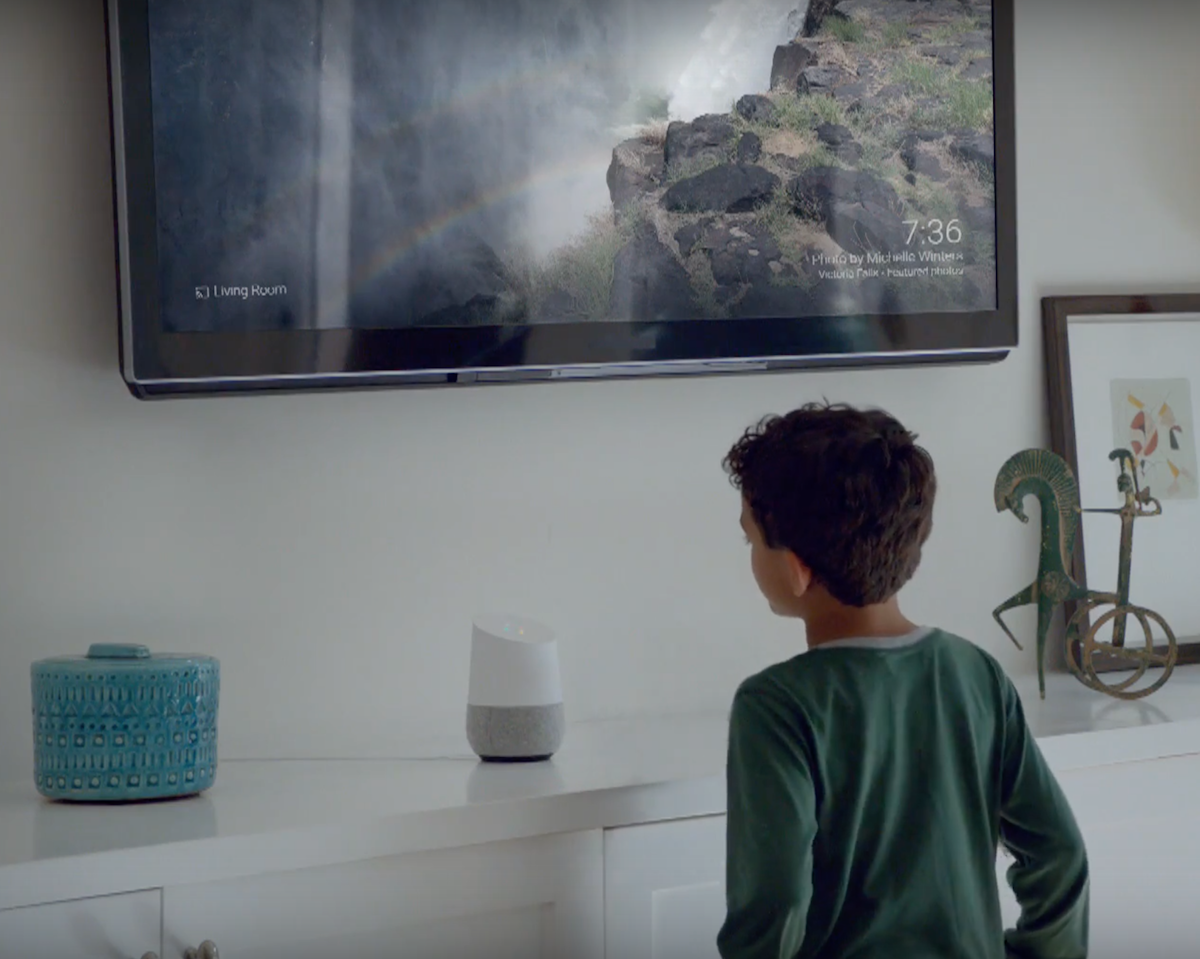
Every day, we seem to be introduced to a new product from the tech world that we apparently can’t live without.
Newer and more complex smartphones, tablets and computers, talking appliances that can turn themselves on, self-driving cars – the list goes on and on. These products are meant to improve our lives and productivity – and in many ways, they do.
But living in this ever-changing digital world has also taken a toll on quality family time. We often spend hours a day on our phones, and gadgets and electronics have replaced much of the time that used to be devoted to talking to and interacting with our children.
Just when you thought technology couldn’t take over any more of our lives, Google has filed a patent for an outrageous new product for families. It aims to help busy parents, but if it becomes a reality, it will further erode the concept of family time.
Independent UK reported:
Google calls the system a series of “devices and methods for protecting unattended children in the home”.
The patent describes how it could work out who was in a room, whether children were in there without their parents, guardians or any adults, and how long they’d been left unattended for.
Once they’d been left in there for a predetermined amount of time, for instance more than five minutes, the system would spring into life, disabling any electrical outlets in the room that could pose a danger to the children and any electronically-controlled doors, to stop them escaping.
It could also bring attention to the situation by instructing lights around the house to flash and an audible warning to sound, saying “[Name] is unattended in the H room” or “Toddler unattended.”
This new system may appear as a great new safety net for parents, but as with all technological advances, the possibility of misuse, overuse, or dependence looms.
Parents will be lured into a false sense of security and leave their children unattended for long periods of time – or worse – some may feel the system enables them to leave little ones alone in the home when they are not there.
Because the system is also set to send emails or texts to parents alerting them to what is going on with their children, there is great danger in misusing the product as a “virtual babysitter” of sorts.
The patent reads, as reported by Independent UK:
“There is a need for improved devices and methods for protecting unattended children in the home or other structure,” the patent reads.
“Here, a computing system disables, or sends instructions to disable, unused electrical outlets and/or door handles in a room in a dwelling in response to a determination that a child-protection condition has been met. This determination is based at least in part on occupancy data for the room.
“The occupancy data may indicate, for example, that a child is alone in a room for at least some amount of time. A safety hazard thus exists that merits disabling of the unused electrical outlets and/or door handles in the room.”
It seems like something out of a science fiction movie, and will undoubtedly cause parents to spend less time with their kids. No device or system, however, can completely monitor every single situation a curious child gets into, and if a malfunction occurs, the consequences could be tragic.
Apart from the probability that children will be spending less time with their caregivers if this product is marketed, privacy concerns should be strongly considered.
Mommy Underground previously reported on the use of smart technology such as Alexa in homes, and the effect they have on children.
This new home system by Google would use cameras, motion detectors, and multiple sensors and microphones to track every occupant in the home. As was reported in this previous article, this digital information is stored on the Cloud and can be seized by government officials in federal and state cases.
It remains to be seen if this product becomes a reality, but marketing it as a safety and security system for the protection of children in the home doesn’t tell the whole story.
We can only hope that if it does become available to the consumer, it is not used as a replacement for parental supervision. It is likely to be cost prohibitive for most families, and perhaps that is for the best.
What are your thoughts? Leave us your comments!
